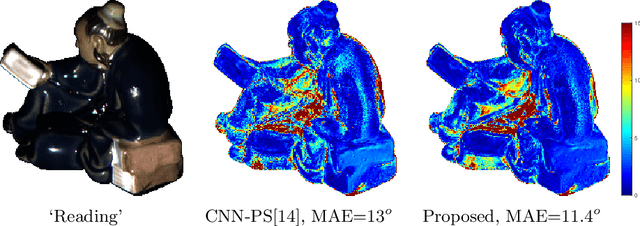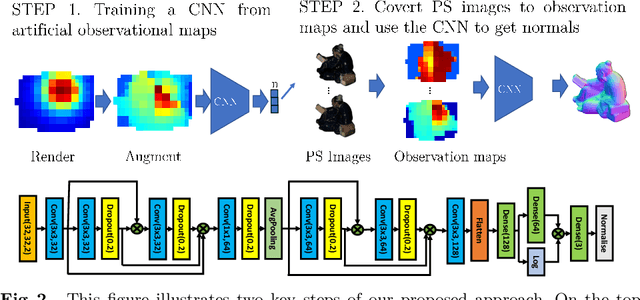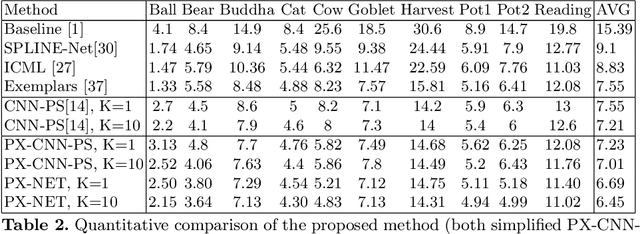PX-NET: Simple, Efficient Pixel-Wise Training of Photometric Stereo Networks
Paper and Code
Aug 11, 2020



Retrieving accurate 3D reconstructions of objects from the way they reflect light is a very challenging task in computer vision. Despite more than four decades since the definition of the Photometric Stereo problem, most of the literature has had limited success when global illumination effects such as cast shadows, self-reflections and ambient light come into play, especially for specular surfaces. Recent approaches have leveraged the power of deep learning in conjunction with computer graphics in order to cope with the need of a vast number of training data in order to invert the image irradiance equation and retrieve the geometry of the object. However, rendering global illumination effects is a slow process which can limit the amount of training data that can be generated. In this work we propose a novel pixel-wise training procedure for normal prediction by replacing the training data of globally rendered images with independent per-pixel renderings. We show that robustness to global physical effects can be achieved via data-augmentation which greatly simplifies and speeds up the data creation procedure. Our network, PX-NET, achieves the state-of-the-art performance on synthetic datasets, as well as the Diligent real dataset.
 Add to Chrome
Add to Chrome Add to Firefox
Add to Firefox Add to Edge
Add to Edge